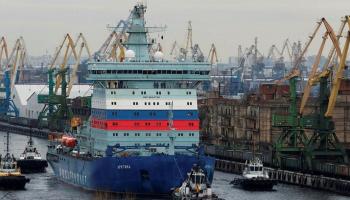
-
Published: 13 June 2022

After the European Union recently approved a gradual ban on its energy imports from Russia, an independent research source revealed the revenues generated by Russia, 100 days after the launch of its military operation in Ukraine, which reached high numbers despite the sanctions imposed on it.
During the first 100 days of Ukraine's war, Russia generated 93 billion euros in revenue from fossil energy exports, particularly from the European Union, according to a report by an independent think tank, with particular reference to France.
The report of the Research Centre for Energy and Clean Air, based in Finland, was issued at a time when Western Ukraine is urging a moratorium on energy imports from Russia to deprive the Kremlin of a source of funding for its war against it.
According to the report, the EU accounted for 61 percent of Russia's fossil energy exports, roughly € 57 billion, during the first 100 days of Russia's attack on Ukraine between February 24 and June 3.
Russia's first source of revenue is crude oil (46 billion euros), followed by gas exported via pipelines (24 billion euros), oil derivatives, liquefied natural gas and finally coal.
The figures show that Russia's revenues have not been cut even if exports fell in May, and although Russia is forced to sell its production at discounted prices on international markets, it has benefited from higher global energy prices.
While some States such as Poland, Finland and the Baltic States were making significant efforts to reduce their imports, others had increased their purchases, including China, India and France, according to the Centre.
"As the EU considers tightening sanctions on Russia, France has increased imports to become the world's largest importer of Russian LNG," said Laurie Miliverta, an analyst at the center.
The expert explained that purchases were made in cash rather than under long-term contracts, which meant that France had deliberately decided to supply Russian energy despite Ukraine's war.
